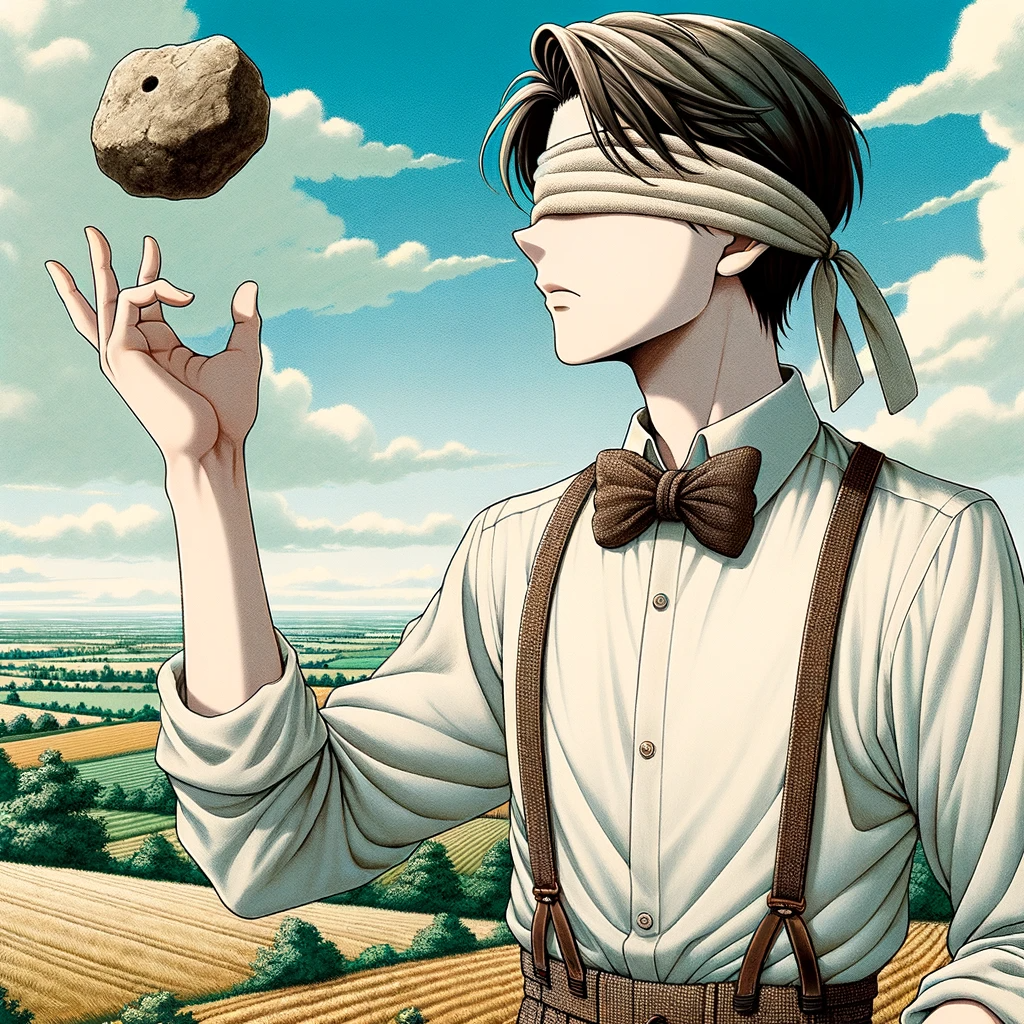Old School
Sitting in my room, the persistent hum of my laptop's fan played a gentle lullaby, each keystroke releasing a soft, rhythmic tap. I was engrossed in my code, attempting to decipher the percentage of Earth that's ocean. Just when my frustration peaked, the familiar musky scent of old leather and wood polish wafted in, a telltale sign of my grandfather's approach.
"Well, whatcha doin' there, boy?" he drawled, his voice gravelly from years of living, adjusting his thick, coke-bottle glasses and peering at my screen with a quizzical squint.
"Trying to figure out how much of the Earth is covered by water. It's mind-bogglingly intricate," I replied, not breaking my typing rhythm.
He chuckled heartily, his laughter echoing through the room. "Back in my day, we didn't mess with them fancy compu-ma-whatsits. We just... threw things!"
Skepticism dripping from my tone, I retorted, "Threw things? Gramps, how does lobbing objects solve complex problems?"
With a mischievous twinkle in his eye, he reached for an old, worn-out globe on the dusty shelf. "Watch and learn," he said, tossing the globe to me. I caught it, feeling its cold, textured surface. "Count how many times your thumb lands on water, and how many times on land. Do it a hundred or so times."
Humoring him, my thumb landed on water 71% of the time after 100 tosses. The result left me gaping. "That's... eerily accurate."
Gramps smirked, rubbing his hands together. "Told ya. Now, 'bout that old tractor outside. Ever wondered what percentage of it is wheels?"
Puzzled, I followed him outside. With a blindfold securely around my eyes, he handed me a rock, cool and rough to the touch. "Throw."
Amidst the chirping birds, fresh, earthy aroma, and warmth of the sun, I lobbed rocks, each one meeting the tractor with metallic clangs or dull thuds. After my last throw, Gramps announced, "The tractor is about 20% wheels, based on our... experiment."
The next day, inside the classroom with its bright fluorescent lights and the faint chalky smell, Ms. Technophile, our ever-enthusiastic computer science teacher, posed a challenge. A staunch believer in technology's supremacy, she often mocked anything remotely archaic. "Class, your task is to determine the percentage of our language that's verbs. Flex those coding muscles!"
While my peers scrambled, I grabbed a dictionary. The crisp pages rustled under my fingers as I randomly selected words, diligently tallying verbs and non-verbs. By the end of the class, I approached Ms. Technophile, handing her my answer.
Her eyes widened, disbelief evident. "Without a computer? This is correct, but how?"
Shrugging, I said, "Old-school methods. They have their merits."
She challenged, "Determine the percentage of this room that's windows."
With a smirk, I responded, "Got any rocks?"
The class erupted in laughter, even Ms. Technophile's stern demeanor cracked, a hint of a smile escaping.
As I walked out of the class, I couldn't help but chuckle. Who knew that in a world obsessed with technology, the wisdom of an old man with bad grammar could still hold its own? Sometimes, the simplest solutions are the best. And sometimes, all you need is a rock.
